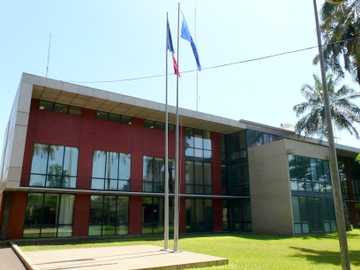On Wednesday, October 18, a copy of an assignment given to students of the French school in Mali, Liberté, scandalized many people on social networks where it was circulating. And for reason, questions were about Azawad:
“What is Azawad? Does this region belong to Mali? / What is the capital of Azawad? How many inhabitants are there?”
What freed the floodgates of anger, outrage on social networks where Internet users have gone so far as to ask for a reminder to the order of the French Ambassador, a closure of said school. Especially since all this comes in a context where the feeling of anti-French is going in crescendo. France, since the day after its intervention, has been accused in public opinion of playing a troubled role in Mali, or of doing more than it should.
In a letter dated October 18, the Embassy of France has presented “its apologies” for “this incident”. “It regrets the inaccuracies and the shortcuts that this assignment could contain, on a subject currently being debated in Mali, one can read in the letter where it is also stated that “there was no malicious intent on the part of the professor who wrote the assignment, but who did not measure the political significance of the term Azawad”.
The term remains a bone of contention between the Malian State and the former rebels of the Coordination of Azawad Movements who, before the signing of the Peace and reconciliation Agreement, claimed independence. Four months ago, the handover ceremony of the “Peace, Unity and Reconciliation Charter” was boycotted by the CMA, which rejected it. Among the reasons for the rejection is the question of Azawad.
The Embassy reassured that the teacher was “reminded of his obligations” and the school will have to remind iis teachers “of the reserve duty to which they are required and the importance of treating the issues concerning Mali with the greatest pedagogical rigor.”

